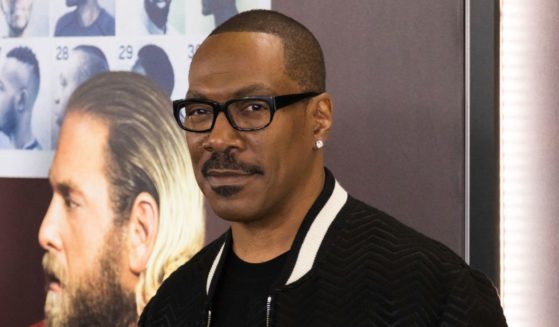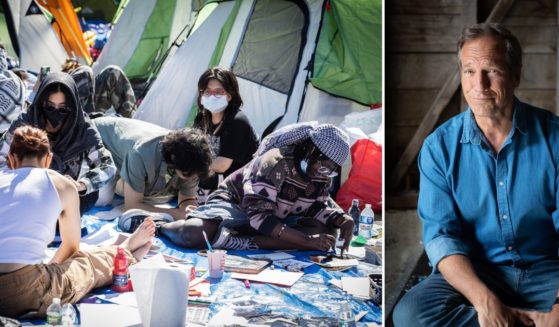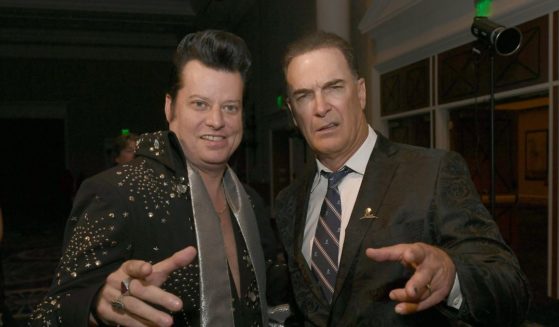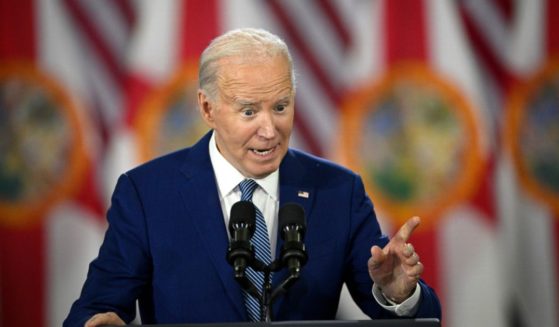The Latest: Sudanese army won't extradite ousted president
CAIRO (AP) — The Latest on the situation in Sudan (all times local):
10 p.m.
Sudan’s defense minister says on TV he’s stepping down as transitional leader a day after ousting the country’s embattled autocratic president.
Gen. Awad Ibn Ouf also announced his successor, army Gen. Abdel-Fattah Burhan, general inspector of the armed forces, as head of the transitional council.
Ibn Ouf said: “I, the head of the military council, announce I am giving up the post,” he said, adding he took the decision to preserve unity of the armed forces.
Tens of thousands of Sudanese protesters have been rallying in front of the military headquarters in Khartoum, against the military takeover of power after ousting longtime ruler Omar al-Bashir on Thursday.
___
9:05 p.m.
The U.N. Security Council has been briefed on the situation in Sudan but has taken no action.
Germany’s U.N. Ambassador Christoph Heusgen, the current council president, told reporters after Friday’s closed-door briefing by Assistant Secretary-General Bintou Keita that all 15 members understood the meeting “as a strong signal that the Security Council is dealing with the issue.”
He said members agreed to continue monitoring the situation.
___
7:50 p.m.
Sudan’s acting U.N. envoy says the military council that took power after overthrowing President Omar al-Bashir “will be the guarantor of a civilian government.”
Charge d’affaires Yasir Abdelsalam told the U.N. Security Council on Friday that a civilian government would be “formed in collaboration with political forces and stakeholders.”
He said “no party will be excluded.”
The Sudanese protest movement has rejected the military’s declaration that it has no ambitions to hold the reins of power for long.
Abdelsalam said the two-year transition period announced by the military council “could be shortened depending on developments on the ground and agreements between stakeholders.”
He spoke at a council meeting after members voted unanimously to extend the U.N. peacekeeping mission in the disputed border region of Abyei between Sudan and South Sudan.
___
2 p.m.
The Sudanese protest movement has rejected the military’s declaration that it has no ambitions to hold the reins of power for long after ousting the president of 30 years, Omar al-Bashir.
In an online statement, the movement depicted the army’s assurances as a “deception” and called for an immediate handover of power to a civilian transitional government.
The statement came shortly after a press conference on Friday in Khartoum by the country’s new military rulers.
The Sudanese Professionals Association, which has spearheaded the four months of demonstrations against al-Bashir, denounced the military’s statements as a “farce.”
It also vowed to “resist” by peaceful means all the extraordinary measures the military has imposed since Thursday’s ouster of al-Bashir, including the nighttime curfew and state of emergency.
___
1:40 p.m.
U.N. human rights chief is urging the new authorities in Sudan to ensure the protection of human rights and to refrain from using violence against the peaceful protesters in the capital, Khartoum.
U.N. High Commissioner for Human Rights Michelle Bachelet in a statement Friday said “this is a very critical, volatile moment for Sudan and there is deep uncertainty and unease about the future.”
The statement came a day after the Sudanese military overthrew Omar al-Bashir, a president of 30 years. The army arrested al-Bashir, imposed a state of emergency that includes a nighttime curfew, suspended the constitution and closed the country’s borders.
Bachelet says: “The crisis in Sudan has its roots in human rights grievances — economic, social, civil and political rights. The solution must also be grounded in human rights.”
___
12:05 p.m.
A Sudanese army official says the military authorities will not extradite deposed President Omar al-Bashir but will try him at home, before the nation.
Col. Gen. Omar Zein Abedeen made the remarks at a press conference on Friday in the capital, Khartoum, defending the military’s removal of al-Bashir from power.
He says the ouster “was not a coup” but a response to the people’s demands.
He said that handing over al-Bashir would be “an ugly mark on Sudan … even rebels carrying weapons, we won’t extradite them.”
Al-Bashir is wanted by the International Criminal Court, where he faces charges of war crimes, crimes against humanity and genocide for his deadly campaign against insurgents in Darfur.
___
11:35 a.m.
The Sudanese army claims it has no ambition to hold the reins of power for long after ousting President Omar al-Bashir, saying it responded to calls from the people against his rule.
Col. Gen. Omar Zein Abedeen told a press conference on Friday that the military wants to “guide the country forward” and act as a “tool for change.”
Zein Abedeen, a member of the transitional council that took over on Thursday after al-Bashir was arrested, tried to strike a conciliatory tone, saying: “We came for you.”
He says al-Bashir is in custody but declined to provide more details. He said al-Bashir’s top government members, including the vice president and associates, are also under arrest but didn’t elaborate.
He pledged the military would stay only as long as it’s needed.
___
9:30 a.m.
Sudanese pro-democracy protesters who spent four months on the streets rallying against the country’s autocratic president are now defying the military leaders who overthrew Omar al-Bashir the day before.
Thousands kept up their sit-in outside the military headquarters in Khartoum overnight and into Friday morning despite a curfew imposed by the army after it arrested al-Bashir.
Organizers of the demonstration say they’ll keep up the campaign. It wasn’t clear if the army would move against the protesters.
The mood in the crowd appeared festive, with protesters playing music and chanting, “Down again” — a reference Defense Minister Awad Mohammed Ibn Ouf.
Ouf, on a U.S. sanctions list for Darfur genocide, was sworn in as head of the new military transitional council that has taken charge for the next two years.
The Western Journal has not reviewed this Associated Press story prior to publication. Therefore, it may contain editorial bias or may in some other way not meet our normal editorial standards. It is provided to our readers as a service from The Western Journal.
Truth and Accuracy
We are committed to truth and accuracy in all of our journalism. Read our editorial standards.












